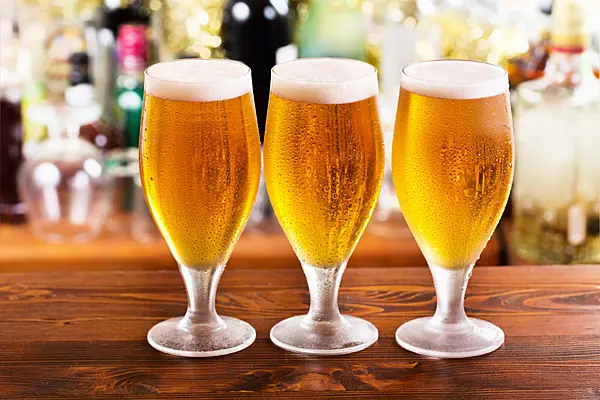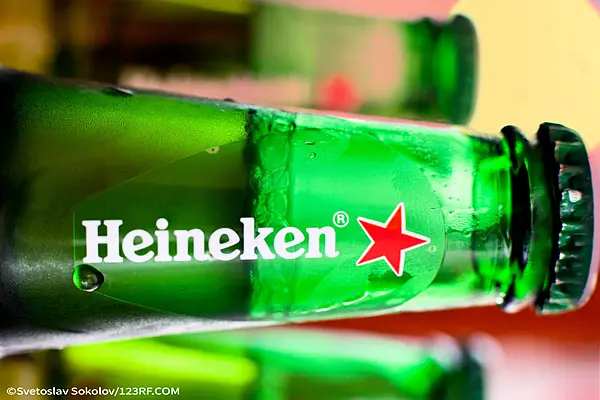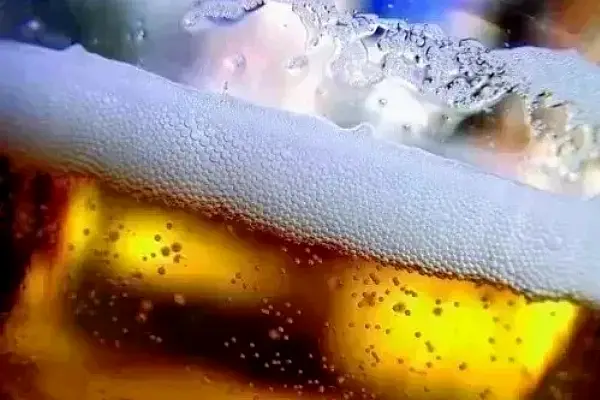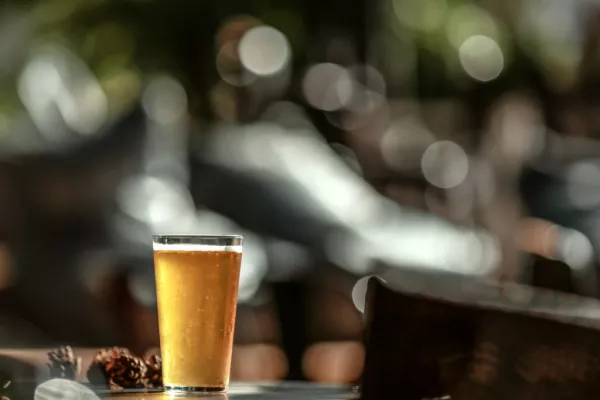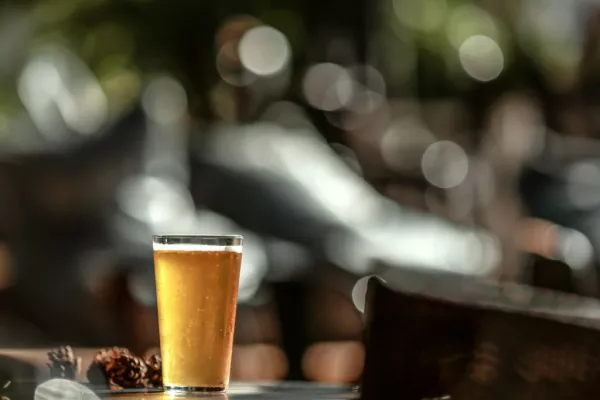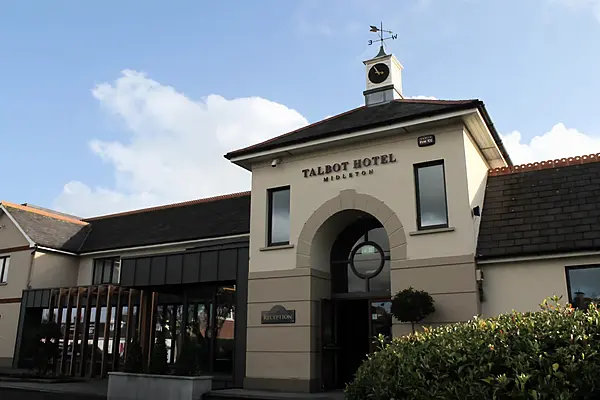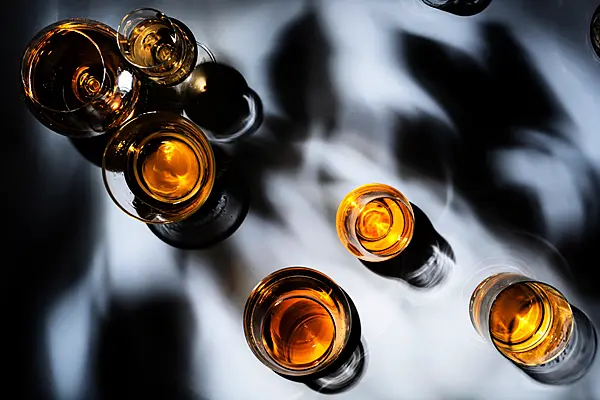Anheuser-Busch InBev ABI.BR forecast on Thursday 24 February that its profit would increase this year as consumers have more opportunities to drink outside of their homes after ending 2021 with stronger results than expected due to higher prices.
The world's largest brewer that makes Budweiser, Corona and Stella Artois said earnings before interest, tax, depreciation and amortisation (EBITDA) would rise by between 4% and 8% this year, in line with its medium-term growth target.
The Belgium-based brewer, with a large presence in the Americas, said this would be based on both higher volumes and prices, noting the forecast reflected its current view of the COVID-19 pandemic.
Unlike rivals Heineken HEIN.AS and Carlsberg CARLb.CO, which warned spiralling price hikes could curb beer consumption, AB InBev's outlook did not mention global inflation or increased input costs.
Chief executive Michel Doukeris told Reuters that inflation would definitely have an impact on consumers, but was not the only factor for 2022.
"There is a balance to that, which is occasions that were not part of last year that will be back in play this year," he said.
Doukeris gave the example of Chinese New Year, which was a much more normal celebration in 2022, and the reopening of venues and events in Europe.
In the United States, the company's biggest market, easing of restrictions meant 35% more beer was sold in bars and restaurants in the week of Super Bowl than in 2021, exceeding by 6% the pre-pandemic levels.
AB InBev shares gained shortly after trading opened, but were down 3.6% at 1130 GMT on Thursday 24 February, in line with a general market sell-off triggered by Russia's invasion of Ukraine, neither of which are significant markets for the company.
The group reported a 5% like-for-like increase in fourth-quarter EBITDA to $4.88 billion, above the 4% average forecast in a company-compiled poll.
The brewer sold more beer in 2021, but the major gain was from price hikes and a consumer shift towards its higher-priced "premium" brands, whose revenues grew by more than 20%. EBITDA for the year was up 11.8%, at the top end of the company's previous outlook of 10-12%.
Brazilian Brewer Ambev's Profit Slumps In Sector-Wide Decline
The above news followed news that Brazilian brewer Ambev SA's ABEV3.SA fourth-quarter net income fell 45.6% from a year earlier to 3.75 billion reais ($748.55 million), it said on Thursday 24 February, citing widespread deceleration across the industry.
The bottom line came in below a consensus forecast for 4 billion reais in a Refinitiv Eikon poll, but Ambev said that it continued to outperform its peers, noting that its volumes were down 3.1% year on year while the decline across the sector was in high single digits.
Ambev's quarterly net revenue rose 18.6% to 22.01 billion reais, above an average market estimate of 21.3 billion reais.
Adjusted earnings before interest, tax, depreciation and amortization (EBITDA) dropped 24.1% to 6.78 billion reais while the EBITDA margin fell 17.4 percentage points to 30.8%.
In a separate securities filing, the subsidiary of Belgium's Anheuser-Busch InBev SA ABI.BR announced that it expects the cost of goods sold (COGS) per hectoliter in its Brazilian beer business to grow by between 16% and 19% this year because of rising commodities prices and depreciation of the Brazilian real.
Budweiser Sees Strong Demand For Premium Beer In China
All of the above news followed news that Budweiser Brewing Co APAC 1876.HK, Asia's largest beer company by sales, said on Thursday 24 February that it plans to promote more high-end beer in China, having seen strong demand especially for limited edition beer gift sets costing more than 1,500 yuan ($237).
The Asia arm of Anheuser-Busch InBev ABI.BR, which has a portfolio of more than 50 beer brands including Hoegaarden, Stella Artois, Corona and Harbin, said it currently holds more than 45% of China's market of premium and super premium beer.
Chinese consumers are drinking less, but better beer, according to industry analysts. Beer typically costs between five and 10 yuan a bottle in China. Premium beer is priced at 10-12 yuan and super premium is anything more.
"Today we estimate that there is only 16% of the total beer consumption in China that is premium or super premium," while in South Korea it is 25% and in the West 40 to 45%, said Jan Craps, co-chair and chief executive of Budweiser APAC, in an interview with Reuters after its fourth-quarter results.
"If you look at the middle income household and GDP growth (in China), the market will be very attractive."
Reflecting the strength of the demand for such products, a super high-end limited edition gift box priced at 1,588 yuan that contained a bottle of beer designed for the Year of Tiger and two Italian crystal glasses, "sold out immediately" after it was launched in January, he said.
"We only sold 2,400 bottles. From the start we didn't try to sell more, we want to keep it very limited."
Major beer brands in China such as Tsingtao Brewery 0168.HK and China Resources Beer 0291.HK have also launched super high-end products costing around or more than 1,000 yuan.
Analysts from Chinese investment bank CICC said in a report in July that the high-end market was the biggest growth driver of the beer industry.
Budweiser on Thursday February 24 reported an 84.8% surge in net profit for 2021 on revenue up 14.9% helped by premium sales.
News by Reuters, edited by Hospitality Ireland. Click subscribe to sign up for the Hospitality Ireland print edition.
